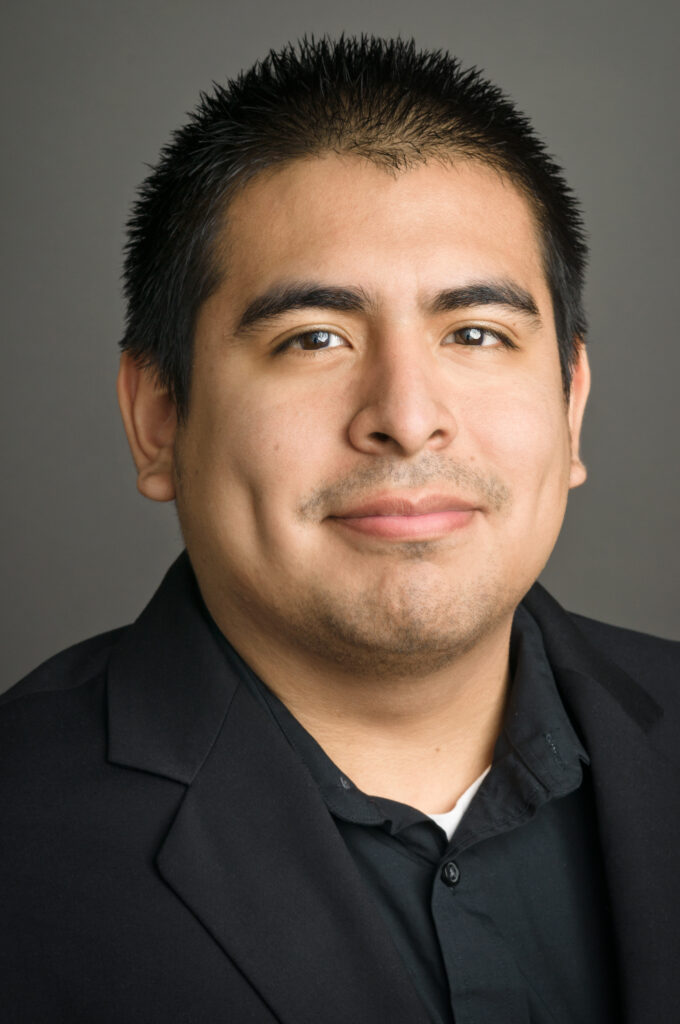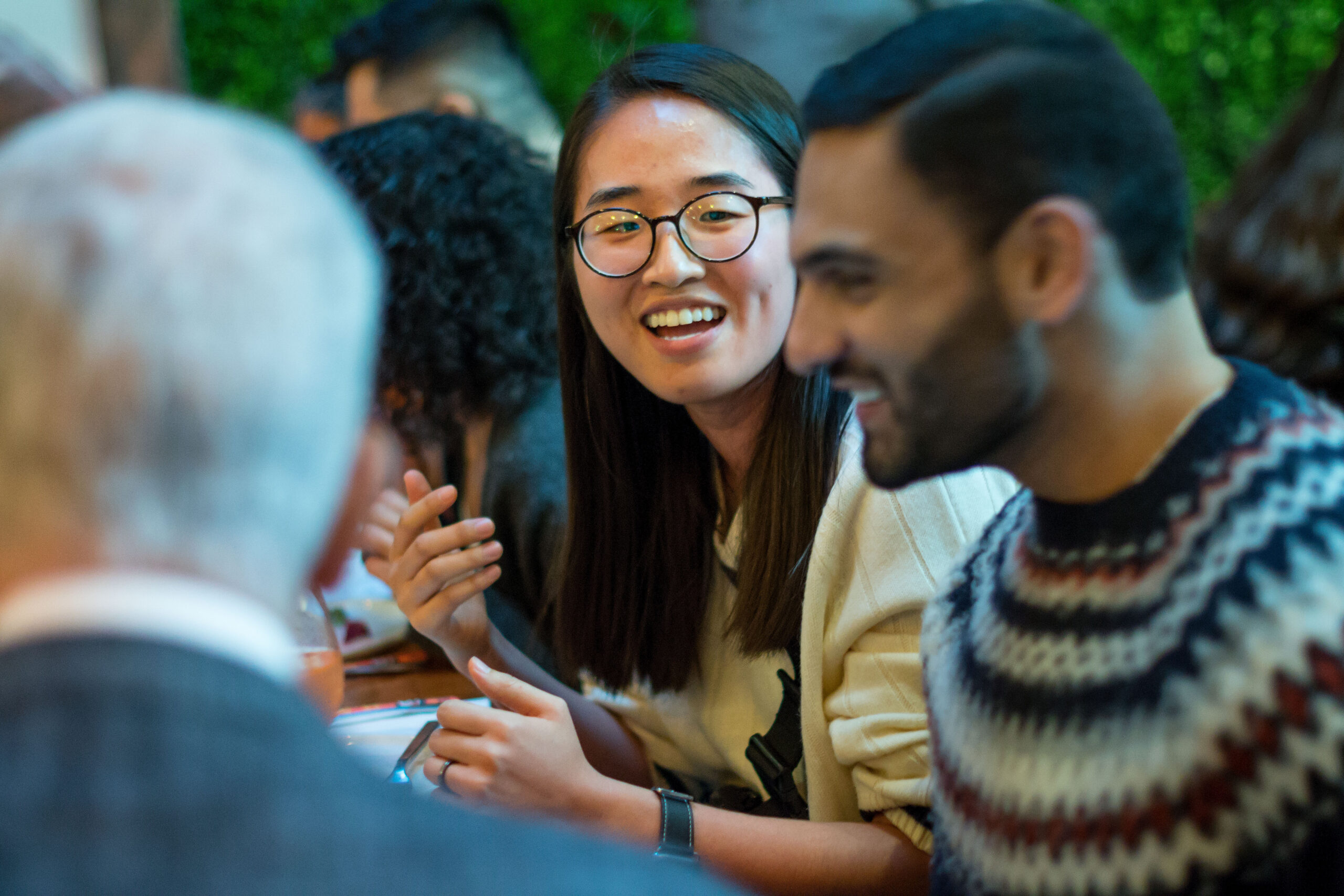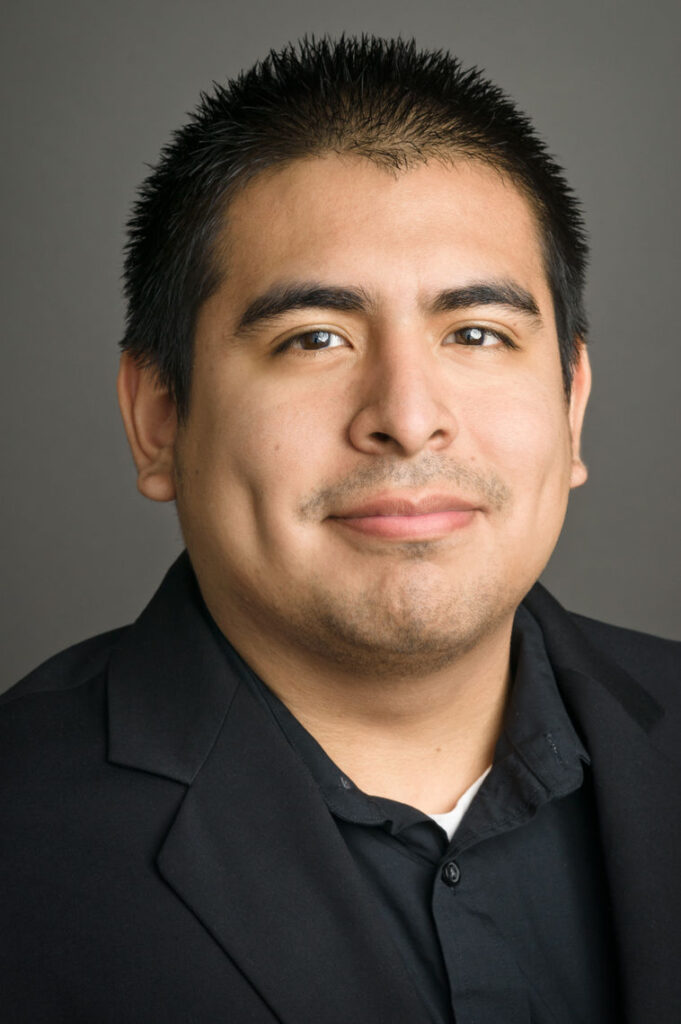- Fellow Highlights
Robert Fernandez: How I’m Shaping Culture

Born in Lima, Peru, Robert Fernandez came to the United States with his parents when he was four. Although he excelled as a high school student, college at first seemed out of reach when his parents disclosed that he was undocumented. Undeterred, Robert found he could attend Union County Community College, which led him to York College in the CUNY system where he was a top student. He went on to receive his PhD in molecular biophysics and biochemistry at Yale University in 2020 and is currently a postdoctoral fellow in the Oliver Hobert Laboratory at Columbia University. In 2017, Rob co-founded Científico Latino, a STEM organization that provides open-access resources for preparing for higher education in the sciences and a graduate school mentorship program that provides one-on-one guidance on graduate school applications in the sciences.
When you look at science academia in the United States, what do you hope to change in the coming years?
Throughout my time as an academic scientist, I have focused on mentoring underrepresented undergraduate students to prepare for careers in the sciences and successfully navigate graduate school applications. I was grateful to work with academic colleagues who have come from underrepresented backgrounds at Yale University, or through my team at Científico Latino, to make a difference in the lives of students by helping them access higher education in the sciences. It is such a privilege seeing these students succeed in graduate school, start their own science initiatives and organizations, and guide others on their graduate school journeys. I hope that my work has laid the groundwork for the next generation of academic scientists to continue to inspire others like themselves to feel they belong and can succeed in the sciences.
What’s the origin story of Científico Latino, the organization you co-founded?
Científico Latino originated from the difficulties I encountered throughout my first year as a Yale PhD student in the Molecular Biochemistry and Biophysics (MB&B) department. For twenty years, I was an undocumented immigrant and a month before I started graduate school, I became a permanent resident and finally received my green card. I had waited for that day for twenty years and I felt that nothing could stand in my way. However, my first year of graduate school was full of difficulties: I did not know how to tackle rigorous academic courses, how to communicate with peers that had come from prestigious academic and social backgrounds, or how to overcome feeling isolated in a room full of people who did not look like me as I was the only Latine student in my class and the only one out of three Latine PhD students in the entire MB&B department.
After overcoming my difficult first year, I wanted to make sure that underrepresented students did not experience what I did and dedicated my efforts to diversity outreach in the sciences at the undergraduate and graduate level. Through the STARS program at Yale, I became an academic coordinator running professional development workshops and mentoring over twenty underrepresented undergraduate students from low-income backgrounds. From my time at Yale, I learned that even undergraduate students at prestigious universities do not have guidance on how to apply for graduate schools in the sciences or how to prepare to become competitive graduate school applicants early on in their undergraduate studies.
From my experiences, I was inspired to help underrepresented communities beyond Yale access higher education in the sciences, but I knew I could not do it alone. As a fifth year graduate student, I received valuable advice from my PD Soros family and my idea only came to fruition when I reconnected with a close friend, Olivia Goldman, who I knew from a summer research program at Princeton University back in the summer of 2012—back when I was an undocumented immigrant. Ever since we met, she has been a supportive friend and ally in making science accessible to everyone. We decided to work together. She named our website, “Científico Latino,” because that’s what I wanted to become and she wanted to communicate that people like me belong in higher education in the sciences.
How has Científico Latino grown since 2017?
Científico Latino started as a website that had a database of open-access resources in the sciences such as undergraduate and graduate fellowships, summer research programs, graduate school preparation programs, and a blog series. In May of 2019, we launched our Graduate School Mentorship Initiative (GSMI) program where we paired underrepresented students applying to graduate school with science professionals to help the students prepare their graduate school applications. Now in its third year, we have helped over ~250 students across the world get accepted to graduate programs (Master’s or PhD) in the sciences. In January of 2021, we started a Graduate Student Engagement and Community (GSEC) Program where we paired underrepresented students in their first year of graduate school with an older graduate student that can provide guidance during their first year of graduate school. GSEC was co-founded by 2020 PD Soros Fellow, Pia Rodriguez Salazar. In the coming years, we plan to continue helping underrepresented students access higher education in the sciences, feel empowered throughout their graduate studies, and prepare them with the next steps after graduate school.
How can other scientists and individuals in STEM fields support Científico Latino and the organization’s broader mission?
The best way to support the mission of Científico Latino is to spread awareness of our open-access resources (database of fellowships, summer research programs, post-baccalaureate programs, and example personal statements). Furthermore, Científico Latino is primarily self-funded, so donations heavily help our team fund our science outreach initiatives such as our mentorship programs.
You recently got into comedy. What types of topics do you talk about when you’re on stage? What drew you to comedy?
I recently started doing comedy to tell a different narrative of my story of being undocumented and navigating a career in the sciences. Mixing storytelling with comedy, I discuss how I found out I was undocumented, moving to New York City with no more than $400 in my pocket, learning what it means to be a scientist, and challenges encountered during my PhD. What I found the most surprising was when someone in the audience told me how impactful it was to hear relatable stories of the challenges that immigrants face in accessing higher education.
What are you working on in your post-doctoral fellowship at Columbia University?
As a postdoctoral fellow in the Oliver Hobert laboratory at Columbia University, I am studying a small nematode called C. elegans which only has 302 neurons. Specifically, I am investigating how proteins called transcription factors regulate neuronal identity and neural circuit assembly in the male C. elegans nervous system. My findings will give me a broader understanding of the mechanisms that regulate how complex nervous circuits are formed and differences in the cellular expression patterns of molecular components across sex-specific nervous systems.
Having been undocumented as a college student, what advice do you have for undocumented students who are early in their graduate school careers?
If you’re an undocumented student in graduate school, I strongly recommend finding your mentors, finding your community in graduate school, and preparing for your next steps if you decide to pursue an academic career. A good team of mentors can be your academic advisor, thesis committee members, and professors affiliated with or outside of your department. You want to make sure that you have mentors that you feel comfortable with discussing issues that are relevant to you, whether it is immigration-related questions or concerns about the next steps due to the political and academic landscape. Personally, I have found my strongest mentors and communities throughout several departments at Yale University as I learned that one mentor cannot answer all of your questions. Lastly, if you are applying to be a postdoctoral scientist, many of these positions require work authorization, so you want to contact prospective advisors or university representatives on how to navigate being undocumented after your graduate career. ∎
Keep Exploring
-
 Read more: The Public Voices Fellowship of PD Soros, in partnership with the Oped Project: Year Four
Read more: The Public Voices Fellowship of PD Soros, in partnership with the Oped Project: Year FourThe Public Voices Fellowship of PD Soros, in partnership with the Oped Project: Year Four
-
Read more: NOT ON MY RESUME: Ming Hsu Chen
- Fellow Highlights
- Fellows in Action
NOT ON MY RESUME: Ming Hsu Chen
-
 Read more: Kathy Ku Steps into Leadership as PDSFA Chair
Read more: Kathy Ku Steps into Leadership as PDSFA Chair- Board of Directors
- Fellowship News
Kathy Ku Steps into Leadership as PDSFA Chair
-
 Read more: Q&A with MD/PhD Student Silvia Huerta Lopez
Read more: Q&A with MD/PhD Student Silvia Huerta LopezQ&A with MD/PhD Student Silvia Huerta Lopez
